Welcome
The Frankfurt area is home to a number of laboratories of international reputation which are dedicated to experimental research at the cutting edge of natural sciences, in particular in the areas of neurobiology and brain research, membrane proteomics and study of macromolecules, atomic and heavy ion physics, and the structure of elementary matter. While these branches of science have many potential connections and areas of overlap, contacts between researchers working in the different disciplines are scarce. Furthermore, while these experimental facilities receive substantial funding, this is not generally the case for theoretical research, which runs the risk of falling behind in the attempt to understand the rapidly accumulating experimental facts. This is particularly deplorable at a time when some of the mentioned disciplines, in particular those in the life sciences, are reaching a stage of maturity which calls for a higher degree of formalization of concepts and mathematical penetration.
This situation has inspired the founding of the Frankfurt Institute for Advanced Studies (FIAS), as an independent research institute performing cutting-edge research in the areas Life Science, Physics, Geosciences, Neuroscience, Computer Science, and Artificial Intelligence.
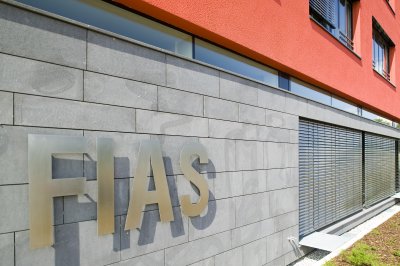
Vision & Values
The Frankfurt Institute for Advanced Studies (FIAS) is an interdisciplinary research institution. Internationally renowned scientists conduct research at the highest level on complex scientific future topics with a focus on simulations and theories as a basis for meeting the challenges of our time.
As a non-profit foundation under civil law, we are committed to society and handle the funds we use with care. We are committed to the Sustainable Development Goals that guide our research activities. Our thoughts and actions are based on openness and diversity in scientific discourse.
At FIAS we practice interdisciplinarity, and we offer a framework for creativity and the development of innovative ideas. The promotion of young scientists is our particular concern. We are committed to internationality and diversity and live equal treatment and mutual support. Our attitude towards each other is respectful and appreciative.
Mission Statement
FIAS is dedicated to fundamental research using theoretical methods in the natural and life sciences, as well as related fields. Through interdisciplinary collaboration and innovation across disciplines, it expands scientific knowledge and inspires solutions to the diverse global challenges of our time.
FIAS trains doctoral candidates to conduct independent scientific research, enabling them to shape the future with responsibility and initiative. The institute cultivates the next generation of leaders who have learned to think in broader contexts.
Boards

According to the philosophy of FIAS, flat hierarchies and a cost-efficient structure are seen as key to success. Scientific Director and Foundation Board (Stiftungsrat) manage the FIAS; Scientific Advisory Board and Faculty have advisory functions.
BoardsFellows
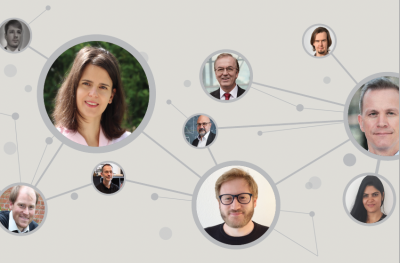
The scientific staff at FIAS is organized in research groups which represent a particular research area. Each research group is headed by a Fellow. They set research priorities with their groups and train the next generation of scientists.
FellowsGoethe University
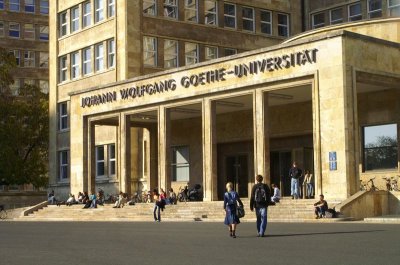
FIAS was founded by the Goethe University as a civil law foundation. Even if it has an completely independent structure, there are still close ties between the two institutions. The Universities president is a member of the FIAS board of trustees and many fellows are professors at Goethe University.
Goethe UniversityStudents
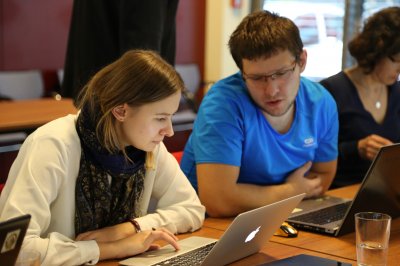
Sustainable scientific success is inextricably linked with the promotion of young researchers. At FIAS they represent about half of the scientists. From this excellent care ratio, benefit not only the young scientists, but also their supervisors.
StudentsHistory

Founding of FIAS
In 2003, two of Frankfurt's most renowned scientists, Prof. Dr. Dr. Dr. h. c. mult. Walter Greiner (picture) and Prof. Dr. Dr. Dr. h. c. mult. Wolf Singer established an interdisciplinary research institute for theoretical basic research.
Start of the institutional work at Campus Bockenheim.
FIAS moves into its first premises in Robert-Mayer-Straße on the Bockenheim Campus.
The graduate school FIGSS starts its work.
The Frankfurt International Graduate School for Science (FIGSS) is the graduate school of FIAS. It provides a framework for structured doctoral training at FIAS and guarantees its interdisciplinary character. The doctoral degrees are awarded by the faculties of the Goethe University Frankfurt.
Official registration as a foundation under civil law
The FIAS is officially registered as a foundation under civil law, the founder is the Goethe University.
Move to Campus Riedberg
FIAS moves into a temporary accommodation in the new physics building on the Riedberg campus.
Johanna-Quandt endowed professorship is awarded to Jochen Triesch
Prof. Dr. Jochen Triesch becomes the first endowed professor of FIAS. This professorship is made possible by a donation from Johanna Quandt.
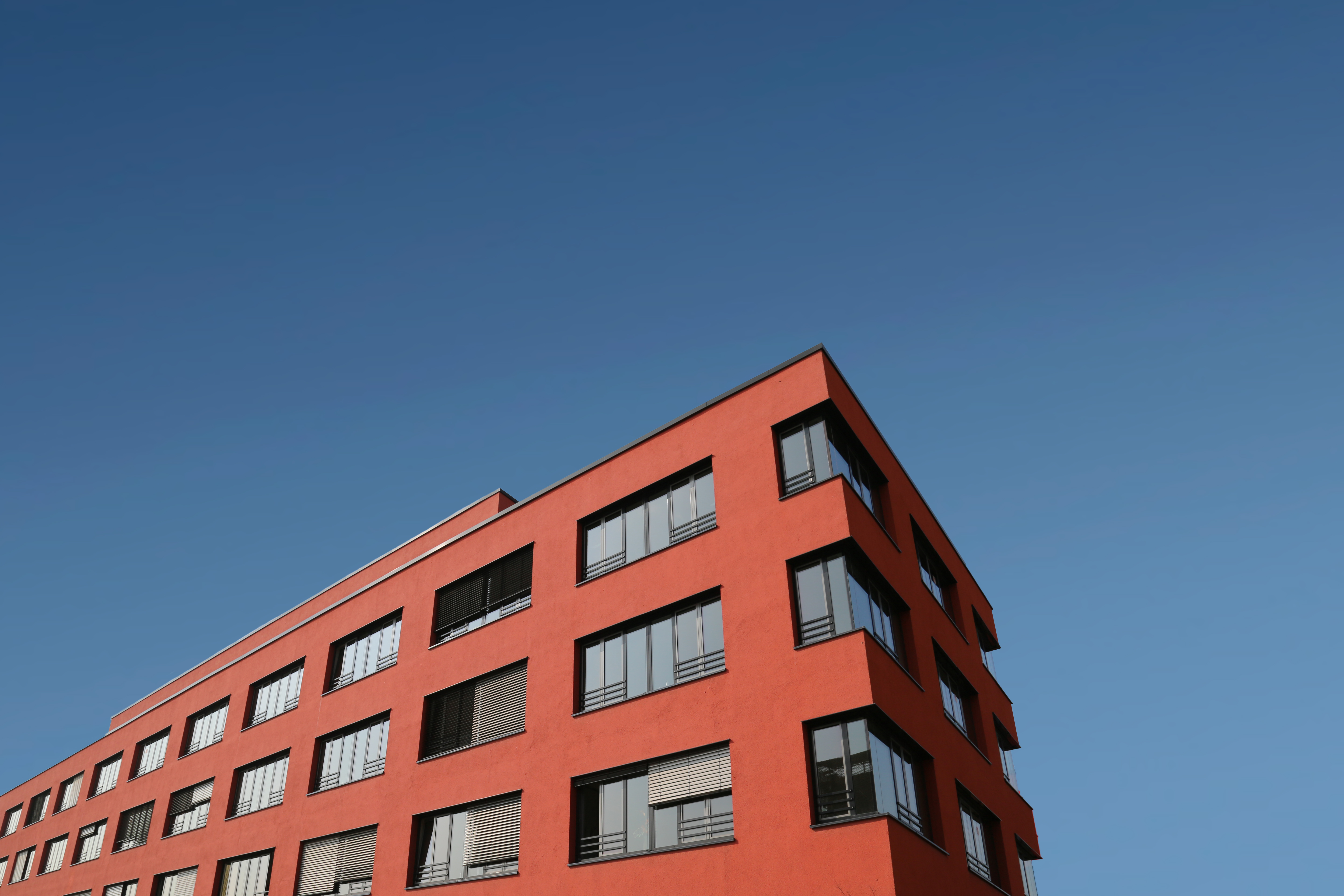
FIAS moves to its own building at Ruth-Moufang-Straße 1. The building was build by our donor STIFTUNG GIERSCH
First successful scientific evaluation
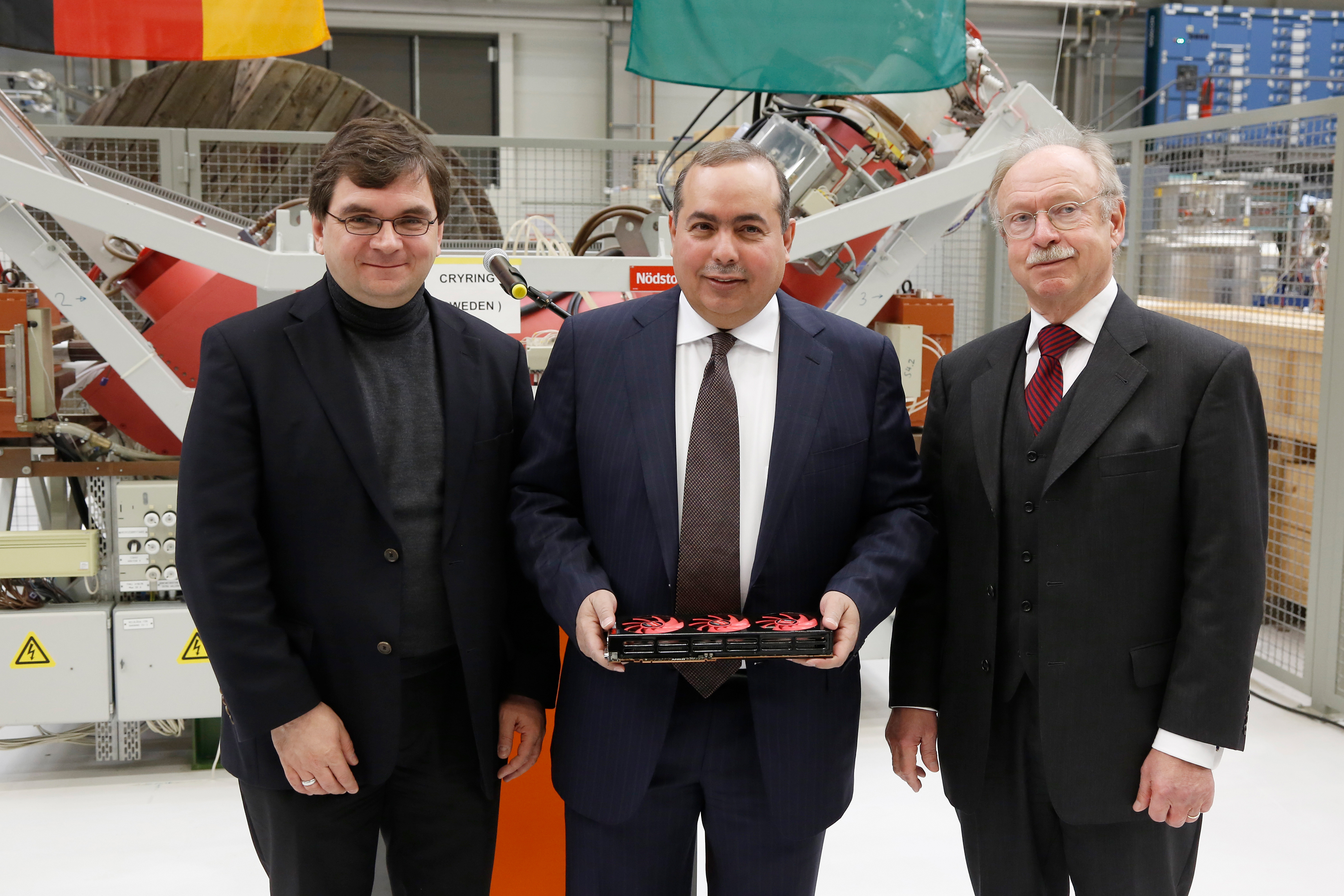
Kooperation with King Abdul Aziz City for Science and Technology (KAST) to build a green supercomputer.
for the construction of the high-performance computer SANAM, together with the Darmstadt GSI Helmholtz Centre for Heavy Ion Research - the world's most energy-efficient high-performance computer for commissioning. (Photo: Volker Lindenstruth (left) and Rudolf Steinberg (right), symbolically present a graphics card of the SANAM supercomputer to His Highness Prince Dr. Turki bin Saud bin Mohammad Al Saud.)
10th FIAS-Fellow gets professor title
The FIAS distinguishes itself as an excellent training location: In 2013, for the 10th time an FIAS Fellow will receive a call to an external university.
10 years FIAS
FIAS celebrates the 10th anniversary of the foundation.
Helmut O. Maucher endowed professorship is awarded to Nils Bertschinger
With a generous donation from Helmut O. Maucher and an endowed chair for systemic risks, a new research focus is being created.
Giersch-Stiftungsprofessur is endowed to Franziska Matthäus
The third endowed professorship is sponsored by the GIERSCH FOUNDATION in 2016. It is dedicated to bioinformatics and thus strengthens the field of life sciences.
New Structures
A Scientific Director replaces the previous Board of Directors, the Foundation Board (Stiftungsrat) is slimmed down, and the Senior Fellows are given more of a voice. The central management makes the processes in the Institute more efficient and simpler

20th anniversary
FIAS celebrates its 20th birthday with an Open Day, summer party and official ceremony.
Read more on FIAS history: Research speedboat: 20 years of the Frankfurt Institute for Advanced Studies (FIAS) | Aktuelles aus der Goethe-Universität Frankfurt.